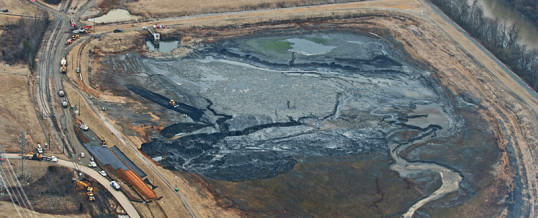Monday, July 21, 2014
By Tonia Moxley, at The Roanoke Times
DANVILLE — Virginia Tech researchers hope a $25,000 National Science Foundation grant will help them find better ways to trace the long-term effects of coal ash spills like the one in February that fouled 70 miles of the Dan River from Eden, North Carolina, to Kerr Lake in Virginia.
The NSF RAPID grant will “help us get a snapshot of what’s going on,” said Madeline Schreiber, a Tech hydrogeosciences professor and lead researcher on the project. The Dan River grant was funded on April 4, two months after the coal ash spill, according to the NSF award notice. Tech environmental nanoscientist Marc Michel and geochemist Ben Gill are co-researchers on the project.
This first-step NSF grant will allow the team to gather data to apply for larger science grants that could lead to sophisticated ways to monitor long-term effects of this and other coal ash spills, Schreiber said.
Read the full story at the Roanoke Times
Image credit: Waterkeeper Alliance

